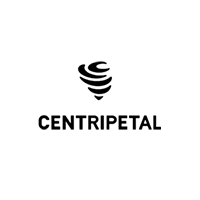Sweden’s Startup Ecosystem in 2025: Global Reach, Local Roots
Sweden remains one of Europe’s most vibrant startup ecosystems, driven by its deep pool of engineering talent, strong social systems, and early international expansion mindset. In 2024, the total value of Swedish startups crossed €239 billion, more than doubling over the past five years. Despite a post-peak recalibration in valuations, investor appetite has remained solid—especially in green technology, fintech, and deep tech.
Stockholm continues to serve as the country’s primary tech hub, but innovation is becoming more geographically distributed. Gothenburg has attracted mobility startups and industrial tech founders, while Malmö and Lund—connected to Denmark’s Copenhagen via the Øresund Bridge—are emerging centers for medtech and B2B software.
Sweden’s International Mindset
Thanks to its small domestic market, most Swedish startups launch with global expansion in mind. This early global approach makes them highly attractive to international venture capital firms looking for scalable, export-ready businesses.
Regional Growth Beyond Stockholm
The rise of second-tier hubs like Gothenburg and Malmö reflects Sweden’s nationwide focus on innovation. These cities benefit from strong academic institutions and industry collaborations, particularly in mobility and healthtech.
Strength in Education and Engineering
Sweden’s workforce ranks among the most technically skilled in Europe. Many successful startups are founded by former employees of Klarna, Spotify, and other unicorns—creating a "Spotify Mafia" effect similar to Silicon Valley’s PayPal legacy.
Sustainability at the Core
Sweden’s leadership in climate policy and green innovation is reflected in its venture landscape. Climate-focused startups continue to raise large rounds, supported by both private VCs and state-backed investment funds.


Key Trends & Leading Investors in Swedish Venture Capital
Venture funding into Swedish startups reached €4.7 billion in 2023, placing the country fourth in Europe. Although this was below the highs of 2021 and 2022, investor interest has remained particularly strong in deep tech and sustainability-driven innovation.
Public-private collaboration is a defining feature of Sweden’s VC ecosystem. State-backed players like Saminvest and Vinnova regularly co-invest alongside top private VCs such as EQT Ventures, Northzone, and Creandum. These firms support startups from early seed rounds to late-stage growth capital.
Fintech, Mobility, and Greentech Lead the Way
Fintech remains a dominant force, with Klarna, Minna Technologies, and Juni drawing international interest. Meanwhile, mobility and climate-tech ventures—particularly those in green manufacturing and battery storage—have gained ground thanks to Sweden’s policy incentives and corporate sustainability mandates.
Impact and Deep Tech Investment Expand
Sweden ranks second in Europe for impact investing and third for deep tech, underscoring its role in solving global challenges through technology. From carbon capture to AI-enhanced manufacturing, Swedish startups are leading some of Europe’s most ambitious innovation projects.
Sweden’s Standout Startups and Funding Rounds
Despite a cautious VC climate, 2023 and 2024 produced several headline-making funding rounds in Sweden. H2 Green Steel’s €1.5 billion equity and debt round marked one of the continent’s largest green industrial investments. In fintech, Klarna rebounded to profitability and began eyeing a future IPO. Meanwhile, Minna Technologies passed the $1B valuation mark, cementing its status among Europe’s leading fintechs.
Climate-focused companies like Absorb and deep tech ventures like Seaborg Technologies continue to secure both government and private capital. This demonstrates the country’s unique ability to balance early-stage support with globally relevant innovation.
As more founders spin out of Sweden’s flagship startups—especially from Klarna and Spotify—a new generation of experienced entrepreneurs is building in fintech, AI, and green tech, ensuring continued growth for the ecosystem in 2025 and beyond.













